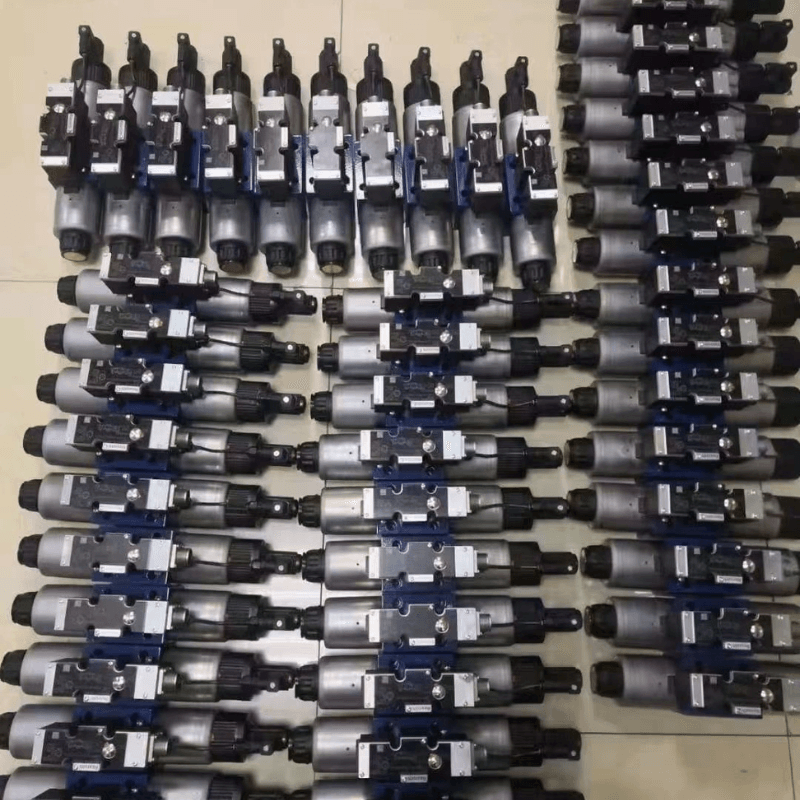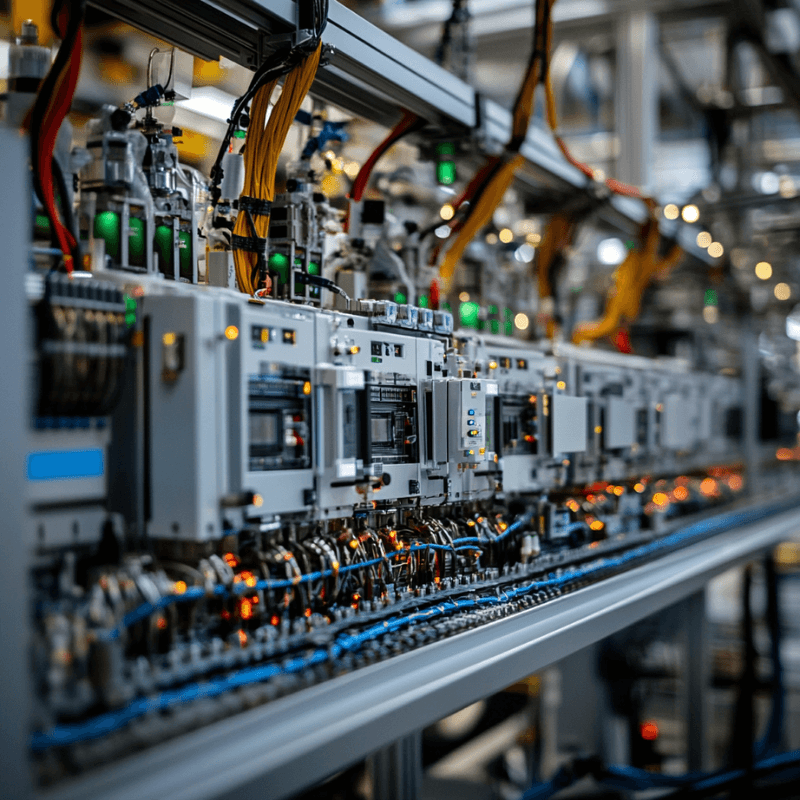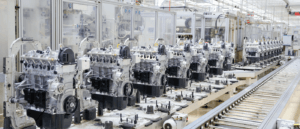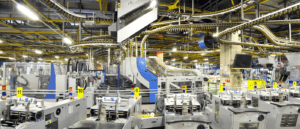"Automation and digital technology have changed the whole world briefly. Machines have replaced human beings to produce goods, services, and products," said Mr. Sergei Brin (Google co-founder).
Automation and controls have revolutionized industries, improving efficiency, precision, and daily life across the globe. With numerous automation solutions available, it can be challenging to navigate which system is best for your business needs.
This article will provide tips on how to make the most of automation solutions, ensuring that you gain maximum value from the right providers. By following these insights, you’ll be on your way to harnessing the full power of automation for your operations.
What is Automation and Industrial Automation?
Automation refers to the use of technology to minimize human intervention in various processes or systems. It allows machines and computers to handle repetitive tasks, enhancing efficiency and accuracy. Industrial automation takes this concept into the manufacturing and industrial sectors, where control systems like computers, robots, and sensors, along with information technology, are used to perform tasks traditionally carried out by humans.
An example of automation can be seen in vending machines replacing cashiers. In industrial settings, automation systems include components like HMIs (Human-Machine Interfaces), industrial robots, control valves, and sensors.
How Has Automation Changed Our Lives Globally?
We are living in a time when automation and technology are revolutionizing nearly every aspect of our personal lives, work, and society. From self-driving cars to AI-driven customer service chatbots, these innovations are becoming more common and have a profound impact on how we live and work. Here are two key examples:
- The Way We Live: Self-Driving Cars and Intelligent Chatbots
Automation is making significant inroads into our daily routines. Self-driving cars, once the stuff of science fiction, are now closer to becoming a reality, with companies like Tesla and Waymo leading the charge. At the same time, intelligent chatbots powered by artificial intelligence (AI) are transforming customer service, handling tasks like answering queries and resolving issues without human involvement.
These advancements illustrate how automation is reshaping our personal lives, much like how our grandparents’ lives were transformed by the introduction of household appliances, which greatly improved efficiency.
- The Way We Work: Automation in Business and Society
Automation is transforming industries globally, much like how the Industrial Revolution mechanized factory work. Now, technology like robots, AI, and control systems are improving productivity, reducing labor costs, and minimizing errors in a wide range of sectors.
With automation's growing influence across various sectors, its impact is undeniable, delivering enhanced productivity, improved efficiency, and better quality of life. Please check the following examples:
- Boosting Global Productivity
Automation and control systems are revolutionizing industries by significantly improving productivity. According to a report by McKinsey, automation could raise global productivity by 0.8 to 1.4 percent annually through 2030. In industries such as manufacturing, automated processes are replacing manual labor in repetitive tasks, leading to faster production times and fewer errors.
For instance, the automotive industry has seen a significant rise in the use of robotic arms for tasks such as welding, assembly, and painting. This has increased efficiency by as much as 60%, with companies like Tesla and Toyota leading the charge in automotive automation.
- Creating New Job Opportunities
Contrary to the fear that automation will lead to widespread job loss, studies show that automation is also creating new employment opportunities. According to the World Economic Forum, automation and robotics are expected to create 12 million more jobs than they displace by 2025. While some jobs are being replaced by machines, new roles are emerging in areas such as AI development, robotics maintenance, and data analytics.
For example, in the retail sector, automation of back-end processes like inventory management has led to the creation of jobs focused on the maintenance and optimization of these systems. While checkout jobs may decline, the need for technical skills to manage automated systems is rising.
- Improving Quality of Life
Automation isn’t just revolutionizing industries—it’s improving everyday life for millions of people. Smart home technologies, powered by automation, are making homes more efficient, comfortable, and secure. From automated lighting and climate control systems to AI-powered home assistants like Amazon’s Alexa and Google Home, these technologies simplify daily tasks and improve convenience.
A study by Statista projects that the smart home market will reach a value of $622.59 billion by 2026, with automation systems playing a pivotal role. Automated security systems, for example, have reduced burglary rates by 25% in areas where they are widely adopted, according to research from the University of North Carolina.
- Enhancing Healthcare
In healthcare, automation is transforming patient care and medical processes. Automated systems are now being used for everything from managing patient records to performing complex surgeries. The global medical automation market is expected to reach $77.74 billion by 2025, according to Grand View Research.
Robotic surgeries, for instance, have proven to be more precise, reducing recovery times for patients by 20%. Automation also plays a key role in diagnostics, with AI-powered systems analyzing medical images and providing early detection of diseases like cancer with 95% accuracy, as reported by MIT.
- Driving Sustainability
Automation is also making industries more sustainable. By optimizing resource use and minimizing waste, automation helps companies reduce their environmental footprint. According to the International Energy Agency (IEA), energy efficiency improvements driven by automation could account for 40% of the global emissions reductions needed to meet climate goals by 2040.
Automated energy management systems in buildings, for example, have reduced energy consumption by up to 30% in commercial real estate, according to the American Council for an Energy-Efficient Economy. Meanwhile, automated farming technologies, such as precision agriculture, are helping farmers reduce water usage and minimize pesticide use, supporting more sustainable food production.
How Uni Regal Corp. Contributes to This Revolution
At Uni Regal Corp., we’re committed to driving the future of automation forward. We don’t just sell parts; we provide solutions. Whether it’s PLCs, HMIs, servo motors, or other critical components, we understand that every part plays a role in a larger system that impacts real lives and industries. We’re proud to have partnered with companies that are setting new standards in efficiency and safety through automation.
I remember a client from the automotive industry who came to us in desperate need of high-quality, reliable automation components. They were losing money due to frequent breakdowns with their existing setup. We helped them upgrade to more robust solutions, and within months, their efficiency and output improved dramatically. It’s moments like these that remind me why our work at Uni Regal is so meaningful.

The Future of Automation and Controls: What’s Next?
The future of automation and controls is full of exciting possibilities. We’re moving toward a world where machines and humans will work even more harmoniously. Imagine smart factories that use AI to predict and prevent breakdowns before they happen or cities that use automated systems to manage traffic and reduce congestion.
One trend I’m especially excited about is the rise of collaborative robots, or “cobots,” designed to work alongside humans safely. We’re also seeing advancements in machine learning algorithms that make control systems smarter and more adaptive. At Uni Regal, we’re staying ahead of these trends, ensuring our clients have access to the latest and greatest in automation technology.
A recent study by Market Research Future forecasts that the global Automation and Control Market will reach approximately USD 217,354.4 million by 2025, growing at a compound annual growth rate (CAGR) of 10.41%. This growth is driven by the increasing adoption of digitized industrial solutions, making automation technologies more affordable and accessible for manufacturing facilities.
By investing in automation, businesses can streamline their operations and reduce reliance on human labor, creating more efficient workflows.
Global Segmentation of Automation and Controls
The automation and controls market is segmented based on geographical regions:
Latin America and Africa: These regions are slowly growing in automation adoption as technology becomes more accessible.
North America: this region remains a leader in adopting automation technologies.
Europe: Key players include Germany, the UK, France, and Italy.
Asia-Pacific: Countries like China, India, and South Korea are rapidly expanding their use of industrial automation.
While automation and controls are no longer confined to factories and industrial settings. They are transforming lives worldwide by reshaping how we work, live, and interact with technology. With automation's growing influence across various sectors, its impact is undeniable, delivering enhanced productivity, improved efficiency, and better quality of life. This article explores the ways automation is changing the world, backed by data and real-world examples.
Challenges and Considerations
Of course, with great technology comes great responsibility. Automation and control systems can be complex to implement, and the initial investment can be significant. There are also concerns about job displacement, though I like to focus on how automation creates new opportunities. For example, workers can be retrained to oversee and manage these systems rather than perform repetitive, dangerous tasks.
It’s about finding a balance. As we move forward, companies must consider both the benefits and the ethical implications of widespread automation. It’s a topic that often comes up when I speak with industry leaders, and it’s one we should approach thoughtfully and carefully.
Conclusion: Embracing the Automation Revolution
The impact of automation and controls on our world is undeniable, from improving safety and efficiency to making life more sustainable. Whether it’s in your daily life or on the factory floor, automation is here to stay—and it’s making a difference. At Uni Regal Corp., we’re honored to be part of this revolution, helping companies implement automation solutions that are not just effective but transformative.
So, how will you embrace the future of automation? Whether you’re looking to improve efficiency, boost safety, or become more environmentally friendly, there’s never been a better time to explore the possibilities. Let’s make this future happen, one innovation at a time.
For more information on how Uni Regal Corp. can support your business needs, please contact us today at info@uniregal.com.






